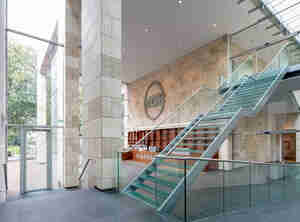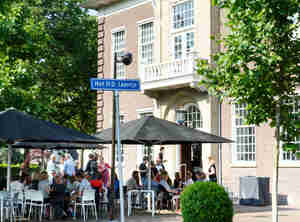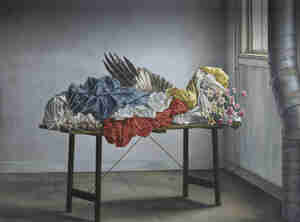- Plan your visit
- See and do
- Collection
- About us

Go back
Carel Willink
To the Future, 1965
In the mid-1960s, Carel Willink (1901-1983) was one of many to become fascinated by the theme of space travel. At the time, giant leaps were being made in space flight: Joeri Gagarin (1934-1968) became the first man in space in 1961.
In this work, Willink combines his visions of the future with qu
...
asi-antique elements. The monstrous sculptures in the foreground are inspired by grotesque statues that he had seen in the Gardens of Bomarzo (aka the Park of the Monsters) while travelling in Italy. This 16th-century park is about 100 kilometres north of Rome and is still open to the public.
Starting in the 1960s, in the last phase of his life, Willink made nineteen apocalyptic paintings in which the modern world of war, technology and science clashes with the ancient civilisation. In these works, the past always loses. His fascination with the bestseller The Decline of the West (1918-1922) by cultural philosopher Oswald Spengler (1880-1936) – which he read as a student – influenced his late works, in which themes introduced by Spengler such as ‘progress brings decline’ and ‘the Western civilisation is dying’ became primary subjects.
Artist
Carel Willink
Title
To the Future
Year
1965
Technique
Oil on canvas
Size
109 x 150 cm (h x w)
Type of object
Painting
Copyright
© Pictoright/Sylvia Willink
This work is protected by copyright. You need permission from the creator or his heir to download, edit, copy or publish it.










